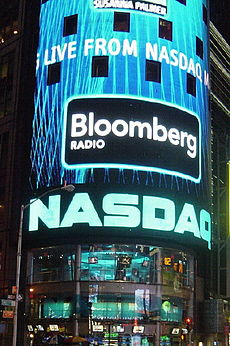
From experience we know that investors may temporarily pull financial prices away from their long term trend level. Over-reactions may occur—so that excessive optimism (euphoria) may drive prices unduly high or excessive pessimism may drive prices unduly low. New theoretical and empirical arguments have been put forward against the notion that financial markets are efficient.
According to the efficient market hypothesis (EMH), only changes in fundamental factors, such as profits or dividends, ought to affect share prices. (But this largely theoretic academic viewpoint also predicts that little or no trading should take place—contrary to fact—since prices are already at or near equilibrium, having priced in all public knowledge.) But the efficient-market hypothesis is sorely tested by such events as the stock market crash in 1987, when the Dow Jones index plummeted 22.6 percent—the largest-ever one-day fall in the United States. This event demonstrated that share prices can fall dramatically even though, to this day, it is impossible to fix a definite cause: a thorough search failed to detect any specific or unexpected development that might account for the crash. It also seems to be the case more generally that many price movements are not occasioned by new information; a study of the fifty largest one-day share price movements in the United States in the post-war period confirms this.Moreover, while the EMH predicts that all price movement (in the absence of change in fundamental information) is random (i.e., non-trending), many studies have shown a marked tendency for the stock market to trend over time periods of weeks or longer.
Various explanations for large price movements have been promulgated. For instance, some research has shown that changes in estimated risk, and the use of certain strategies, such as stop-loss limits and Value at Risk limits, theoretically could cause financial markets to overreact.
Other research has shown that psychological factors may result in exaggerated stock price movements. Psychological research has demonstrated that people are predisposed to 'seeing' patterns, and often will perceive a pattern in what is, in fact, just noise. (Something like seeing familiar shapes in clouds or ink blots.) In the present context this means that a succession of good news items about a company may lead investors to overreact positively (unjustifiably driving the price up). A period of good returns also boosts the investor's self-confidence, reducing his (psychological) risk threshold.
Another phenomenon—also from psychology—that works against an objective assessment is group thinking. As social animals, it is not easy to stick to an opinion that differs markedly from that of a majority of the group. An example with which one may be familiar is the reluctance to enter a restaurant that is empty; people generally prefer to have their opinion validated by those of others in the group.
In one paper the authors draw an analogy with gambling. In normal times the market behaves like a game of roulette; the probabilities are known and largely independent of the investment decisions of the different players. In times of market stress, however, the game becomes more like poker (herding behavior takes over). The players now must give heavy weight to the psychology of other investors and how they are likely to react psychologically.
The stock market, as any other business, is quite unforgiving of amateurs. Inexperienced investors rarely get the assistance and support they need. In the period running up to the recent Nasdaq crash, less than 1 per cent of the analyst's recommendations had been to sell (and even during the 2000 - 2002 crash, the average did not rise above 5%). The media amplified the general euphoria, with reports of rapidly rising share prices and the notion that large sums of money could be quickly earned in the so-called new economy stock market. (And later amplified the gloom which descended during the 2000 - 2002 crash, so that by summer of 2002, predictions of a DOW average below 5000 were quite common.)
Irrational behavior
Sometimes the market tends to react irrationally to economic news, even if that news has no real effect on the technical value of securities itself. Therefore, the stock market can be swayed tremendously in either direction by press releases, rumors, euphoria and mass panic.
Over the short-term, stocks and other securities can be battered or buoyed by any number of fast market-changing events, making the stock market difficult to predict.


No comments:
Post a Comment